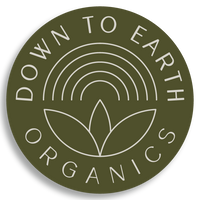
How did Kaitake Farm come about?
Kaitake Farm was an idea friends Ryan Gut and Toby Dixon formulated in mid-2016. The farm is located on an ex-organic kiwifruit orchard, previously run by Toby’s parents, on Kaitake Road.
Kaitake Farm is born from the recognition for local food resilience, a desire to step away from the negative environmental impacts of industrial food production and individual values that Ryan and Toby hold. Since its inception Kaitake Farm has had a number of awesome people onboard who have all been a part of the building and growing of the farm.
Currently the crew consists of Ryan, Toby, Tae, Jonathan and Mitzi, the answers to the following questions are a hybrid from them all:
Why are organics important to you?
Organics is one part of our desire to redesign our food system and create one that pollutes less, minimises soil erosion (Aotearoa loses nearly 200 tonnes of soil each year, polluting rivers and reducing our ability to grow in the future) and supports a higher diversity of life. Organics is only a small part of the paradigm shift, and if done with the wrong intentions can perpetuate the problems of mainstream industrial agriculture.
Favourite produce to grow and why?
Can’t beet a quality carrot! Haha
Miner’s lettuce is a winter favourite, Cherry Tomatoes with Basil in the summer!
How do you live and work sustainably and minimize environmental impact?
Growing and eating locally produced food, preserving and fermenting. In the beginning of 2018 the farm purchased an electric van for deliveries. Between the crew there are hybrid cars, a motorbike, and we encourage ride sharing to work.
The 2000sqm (1/2 acre) farm uses no fossil fuel powered machinery. All work is done by hand using simple garden tools, with the help of and electric greens harvester and a precision seeder.
Only natural inputs and no weed control sprays are used.
What's the most challenging part of working this way?
Sometimes this kind of repetitive – at times even tedious work – can be hard on the body and mind.
There’s also a difficulty actually making a "living wage”. It’s nearly impossible to compete against the prices of industrial ag (oil, used to power tractors, and fertilisers are cheaper than human labour). The free market doesn't yet recognise the importance and value of changing the food system, and we don't get subsidies.
What does wellness mean to you, how do you practice this, especially outside of work?
Wellness to us is about being able to feel good about a day’s work at the farm – undertaking tangible work that has a positive result in the local community.
It’s also about feeling strong and healthy daily, individually and collectively.
We all enjoy a range activities including hiking, playing music, conservation and surfing.

